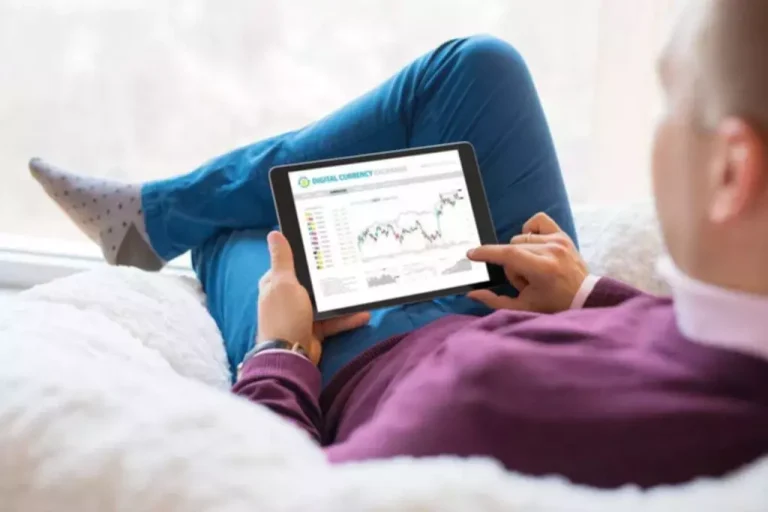Content
Tastytrade offers a cash bonus of $50 to $5,000 for opening an account worth at least $2,000 depending on the size of the initial balance. A mobile app user can chat live can metatrader 4 trade bitcoins with a trading specialist and even share their screen without leaving the app. The app even has chat rooms built into it, so you can talk trading with your peers. Steven previously served as an Editor for Finance Magnates, where he authored over 1,000 published articles about the online finance industry. Steven is an active fintech and crypto industry researcher and advises blockchain companies at the board level.
Pros and Cons of Online Brokers
A trading platform is a software system offered to investors and traders by financial institutions, such as brokerages and banks. They essentially enable investors and traders to place trades and monitor their accounts. When it comes to investing, selecting the Digital asset best online brokers is a crucial decision.
Clever finance tips and the latest news
These tools can help traders analyze market trends and make informed trading decisions. Finteria provides traders with a range of data analysis tools to help them make informed trading decisions. In summary, a trading platform is a crucial tool for traders to participate in financial markets. It provides access to market https://www.xcritical.com/ data, order execution capabilities, portfolio management tools, and research resources. Whether you are a retail investor or a professional trader, a trading platform is an essential component of your trading journey.
What Are the Different Types of Trading Platforms?
Trading platforms are cost-effective compared to traditional brokerage services. They usually have lower fees and commissions, which can help traders save money on their trading activities. In this article, we explored the concept of trading platforms and discussed different types available, including online brokerage platforms, forex trading platforms, options trading platforms, and more. We also highlighted some popular trading platforms in the market, such as MetaTrader, Thinkorswim, and Robinhood. Trading platforms come in various forms, including online brokerage platforms, direct access trading platforms, peer-to-peer trading platforms, and cryptocurrency trading platforms. The choice of platform depends on the trader’s specific needs, such as speed, market access, cost, and the type of asset being traded.

They provide accessibility, convenience, and a wide range of tools that empower traders to take control of their investment decisions. Whether you are a seasoned investor or just starting, choosing the right trading platform is essential for your trading success. In addition to executing trades, trading platforms also provide tools and features for portfolio management. Traders can monitor their holdings, view their transaction history, and access performance reports.
Electronic trading platforms typically stream live market prices on which users can trade and may provide additional trading tools, such as charting packages, news feeds and account management functions. Some platforms have been specifically designed to allow individuals to gain access to financial markets that could formerly only be accessed by specialist trading firms using direct market access. They may also be designed to automatically trade specific strategies based on technical analysis or to do high-frequency trading. The two types of online trading platforms currently in use worldwide are commercial trading and proprietary platforms. Commercial trading platforms are renowned for their relative simplicity to navigate. They are typically used by day traders and retail investors, and usually offer access to educational resources and other useful tools to those looking to better their trading skills.

Renowned for its advanced analytics tools and algorithmic trading capabilities, cTrader is a favorite among experienced traders. This platform is designed to deliver professional-grade performance, enabling users to execute complex strategies with precision. Opening an account grants you entry to a trading platform equipped with diverse investment tools.
- He founded TradersLog.com, which has received tens of millions of page views to date.
- A trading platform is a software or digital interface provided by financial institutions or brokers that allows investors and traders to execute transactions in financial markets.
- They collaborate with market makers to match buyers and sellers, and oversee settlements involving the exchange of cash for securities.
- These traders rely heavily on technical analysis and intraday market inefficiencies to generate profits.
- The contracts are entered into between a broker and a buyer to buy the difference in an asset’s price (e.g., currency pairs, stocks, precious metals, etc) from the time the contract opens to when it closes.
If you trade using this money, a process called margin trading, you can magnify any losses you incur. You can lose more money than you actually deposit—and be obligated to pay it. So if you’re relatively new to investing and don’t plan to monitor your account regularly, it’s typically best to stick with a cash account.
Check the quality of customer service, as effective support is vital when you encounter technical issues or have trade-related inquiries. In its Refer a Friend program, Interactive Brokers will pay you $200 for each person you refer to the broker who opens an individual or joint account. Also, your new-client friend will receive $1 in IBKR stock for every $100 of value they add to their account.
They offer a variety of features, such as user-friendly interfaces, access to different markets, and trading tools and analytics. A robust platform should provide access to a broad range of financial markets, catering to the diverse needs of investors. These platforms provide direct access to market exchanges, bypassing traditional brokerages to enable quicker trade executions. Trading platforms make it easier for people to invest their money and reach their goals. These portals are usually online, giving the individual freedom to choose to invest on their own or with the guidance of an investment professional. Choosing the right trading platform depends on how much capital you have, your needs and goals, and your experience.
The largest drawback to my mind is the lack of any paper trading account options, a feature that would certainly improve their Youth app by allowing beginner investors to practice using virtual money. Trading platforms have transformed the way people participate in financial markets. Whether you’re a beginner or an experienced trader, a trading platform serves as your gateway to the exciting world of finance. Trading platforms have revolutionized the way we participate in financial markets.
Trading platforms can be accessed via desktop applications, web browsers, and mobile apps, allowing users to trade from different devices. Some trading platforms offer educational resources, market analysis, and research reports to help traders enhance their understanding of the financial markets. We also looked at which brokers offer unique features like webinars, live seminars, videos, progress tracking, paper trading (aka a stock market simulator) and interactive educational elements such as quizzes. Trading platforms act as intermediaries between traders and the financial markets, providing access to real-time market data and offering a range of tools and features to help traders make informed decisions. They have revolutionized the world of finance by making trading accessible to a wider audience, enabling individuals to participate in the global economy from the comfort of their homes or offices. Trading platforms should provide traders with real-time market data, including price charts, technical indicators, and financial news.
Trading platforms are software applications that allow traders to buy and sell financial assets. Trading commissions are fees charged by a trading platform for each trade that is executed. The amount of the commission can vary depending on the platform, the type of trade, and the size of the trade.
Most brokers have their own trading software, although some provide third-party software. For example, in the forex industry, many brokers have their own software, but many also provide MetaTrader4 and/or MetaTrader5, which is a commonly used third-party trading platform. There are different types of trading software with different features provided by both brokerages and third-party developers. There are a wide variety of trading software packages available at all levels of trading experience and tailored to different markets (e.g., stocks vs. forex). Trading software facilitates the trading and analysis of financial products, such as stocks, options, futures, or currencies.